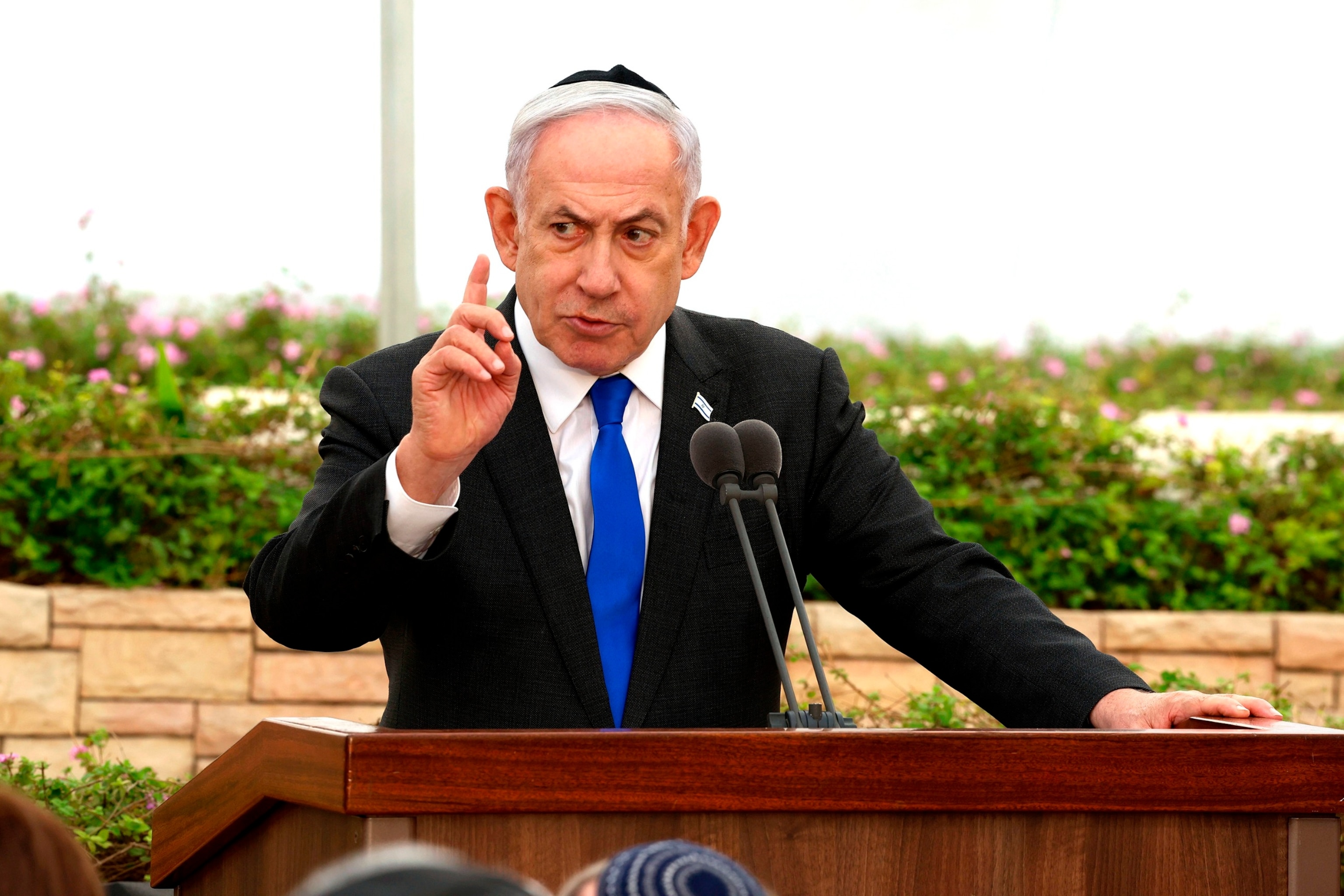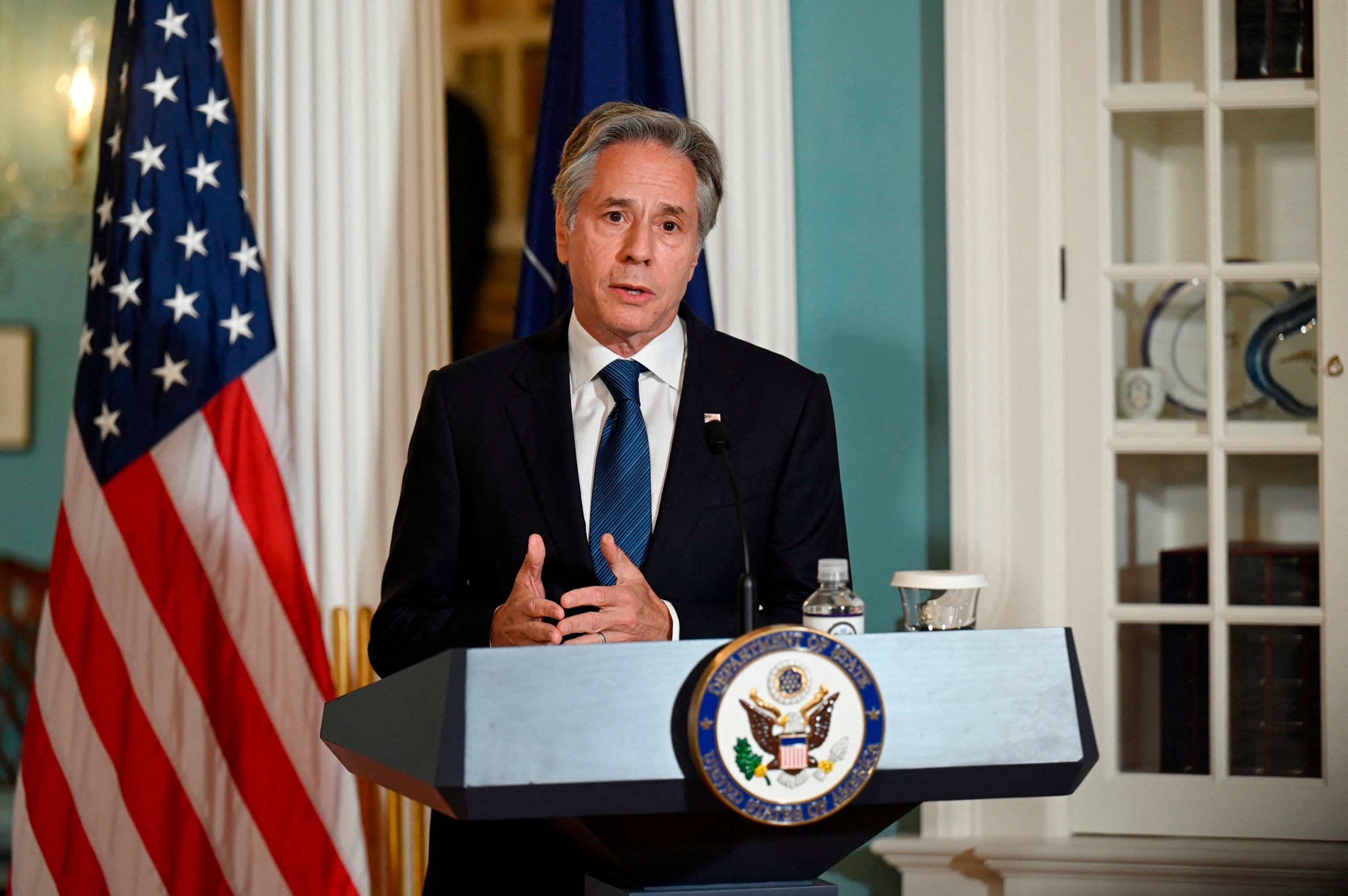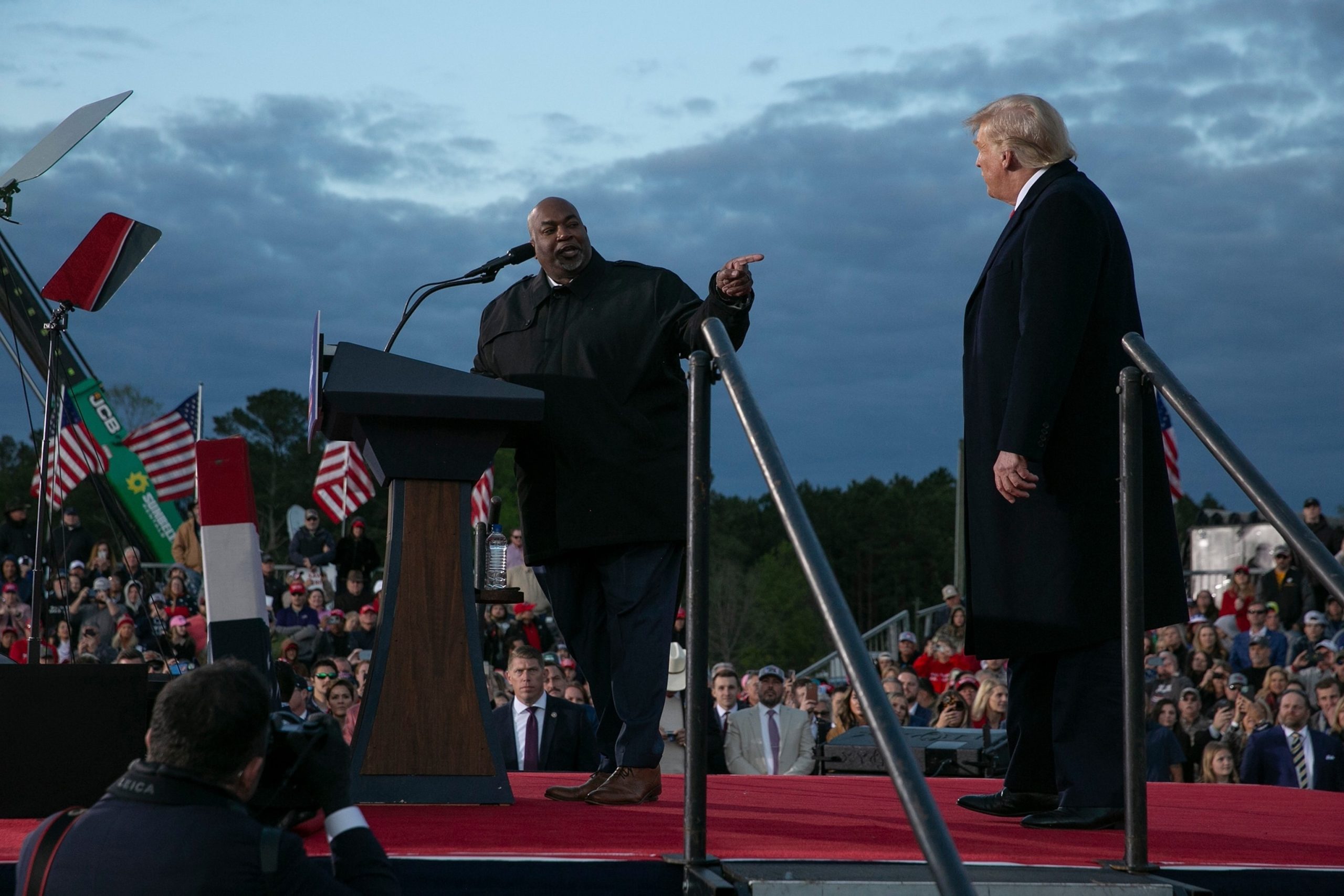Israeli Prime Minister Benjamin Netanyahu’s public assertion that the Biden administration is broadly withholding military support for Israel amid its ongoing war with Hamas in Gaza prompted confusion and frustration across Washington on Tuesday, as Biden administration officials flatly denied the allegations.
“We genuinely do not know what he’s talking about,” White House press secretary Karine Jean-Pierre said at her daily press briefing. “We just don’t.”

White House Press Secretary Karine Jean-Pierre speaks at a press briefing at the White House, on June 18, 2024, in Washington, D.C.
Kevin Dietsch/Getty Images
Netanyahu made the accusations in a video posted to X.
Speaking in English, he said he told Secretary of State Antony Blinken during the U.S. diplomat’s recent visit to Israel that it was “inconceivable that in the past few months, the administration has been withholding weapons and ammunitions.”
“Israel, America’s closest ally, fighting for its life, fighting against Iran and our other common enemies,” he continued.

Israeli Prime Minister Benjamin Netanyahu speaks during a ceremony at the Nahalat Yitshak Cemetery in Tel Aviv, Israel, on June 18, 2024.
Shaul Golan, POOL via AP
In the prime minister’s retelling of the conversation, Blinken gave assurances that the Biden administration was working “day and night” to remove “bottlenecks.”
“I certainly hope that’s the case. It should be the case,” Netanyahu said.

US Secretary of State Antony Blinken speaks during a joint press conference with NATO Secretary General Jens Stoltenberg at the US State Department, in Washington, D.C., June 18, 2024.
Olivier Douliery/AFP via Getty Images
During a news conference Tuesday at the State Department, Blinken was asked for his side of the story.
While the secretary declined to confirm or deny Netanyahu’s characterization of their discussion, he repeatedly underscored the Biden administration’s commitment to Israel’s defense.
“It’s very important to remember that our security relationship with Israel goes well beyond Gaza. Israel is facing a multiplicity of threats and challenges including in the north, from Hezbollah, from Iran, from the Houthis in the Red Sea,” Blinken said.
He also emphasized President Joe Biden’s promise to ensure Israel has “what it needs to effectively defend itself against these threats,” arguing it was critical to avoiding greater escalation in the Middle East.
“There has been no change in our posture,” Blinken insisted, saying it was “regular order” with the exception of one shipment of 2,000-pound bombs paused over Biden’s publicly expressed concern the imprecise munitions could be used in the southern Gazan city of Rafah and other areas heavily populated by civilians.
Two officials involved in approving arms transfers to Israel backed up the secretary’s comments, telling ABC News the administration is continuing to process both longstanding requests in the pipeline and new orders made after the onset of the conflict.
Although the Biden administration has faced increasing pressure from members of the president’s own party to halt military support for Israel, Blinken invoked emergency authorities twice in December to bypass congressional review and speed up arms shipments to the country.

In this photo released by the Israel Defense Forces (IDF) on June, 2024, Israeli soldiers conducting a military operation in Gaza Strip.
Israel Defense Forces Handout via SIPA via Shutterstock
“Since Hamas’ vicious attack on Oct. 7, we’ve rushed billions of dollars in security assistance to Israel to enable them to defend themselves,” Pentagon spokesperson Maj. Gen. Pat Ryder said Tuesday. “And we are going to continue to provide them the security assistance they need for defense.”
While the administration has promised it will continue to support the Israeli military, a review of U.S. defense transfers ordered by President Biden cast significant doubt on whether Israel was using American arms in compliance with international humanitarian law.
The report, which was released in May, found it was “reasonable to assess” that defense articles provided by the U.S. been used by Israeli security forces in Gaza in ways there were “inconsistent” with the country’s legal obligations or best practices for mitigating civilian harm.
ABC News’ Anne Flaherty and Justin Gomez contributed to this report.
The Biden administration has recently refuted allegations made by Israeli Prime Minister Benjamin Netanyahu that the United States interfered in arms shipments during the recent conflict between Israel and Hamas. Netanyahu claimed that the US pressured Israel to halt arms shipments to Israel during the conflict, which lasted for 11 days and resulted in significant casualties on both sides.
In response to these allegations, the Biden administration has categorically denied any interference in arms shipments to Israel during the conflict. White House Press Secretary Jen Psaki stated that the US has a longstanding commitment to Israel’s security and that there was no change in policy regarding arms shipments during the conflict.
The US has been a staunch ally of Israel for decades, providing military aid and support to ensure Israel’s security in a volatile region. The Biden administration has reiterated its commitment to Israel’s security and has pledged to continue working closely with the Israeli government to address security challenges in the region.
The recent conflict between Israel and Hamas was sparked by tensions in Jerusalem, particularly over the eviction of Palestinian families from their homes in the Sheikh Jarrah neighborhood. The conflict escalated quickly, with Hamas firing rockets into Israeli territory and Israel responding with airstrikes on Gaza.
The Biden administration played a key role in brokering a ceasefire between Israel and Hamas, with President Biden speaking with both Netanyahu and Palestinian President Mahmoud Abbas to de-escalate the situation. The ceasefire was ultimately agreed upon, bringing an end to the violence and allowing for humanitarian aid to reach those affected by the conflict.
Despite the allegations made by Netanyahu, the Biden administration remains committed to supporting Israel’s security and working towards a lasting peace in the region. The US will continue to engage with both Israeli and Palestinian leaders to address the root causes of the conflict and promote stability and security for all parties involved.



